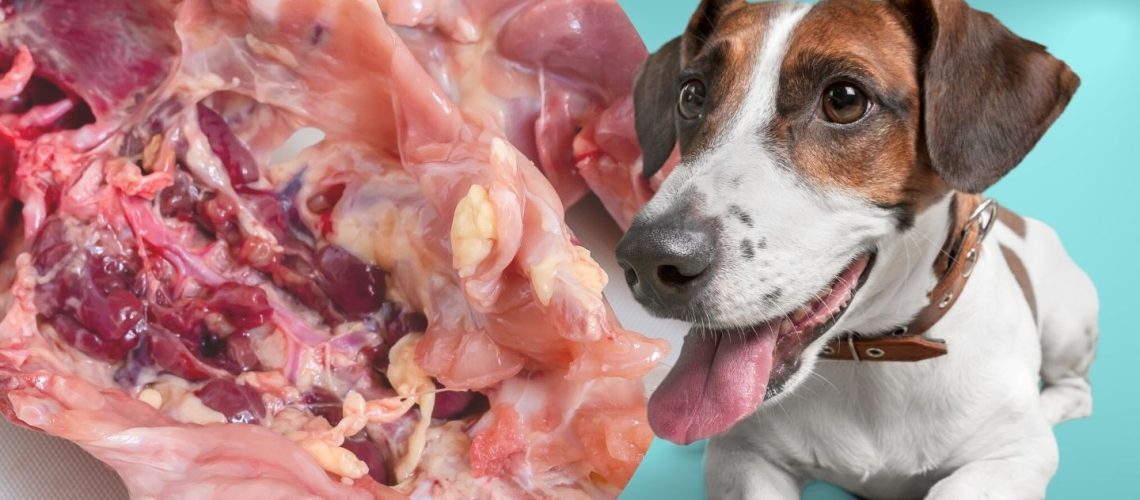Can Dogs Eat raw chicken bones?
No, dogs should not eat raw chicken bones. Raw chicken bones can splinter and break when chewed, which can cause serious internal injuries to a dog's mouth, throat, and digestive tract. These bones can also become lodged in a dog's throat, leading to choking and difficulty breathing. Additionally, raw bones can carry bacteria and cause food poisoning. It is important for dog owners to understand the potential dangers associated with feeding their pets raw chicken bones.
The Composition of Raw Chicken Bones
Bone Structure and How it Changes with Cooking
Raw chicken bones are more elastic and pliable than cooked bones. However, when chewed, they can still splinter and break into sharp pieces. Cooking chicken bones causes them to become more brittle and likely to splinter, making them even more dangerous for dogs to consume.
Potential Bacteria Found on Raw Chicken Bones
Salmonella
Raw chicken bones, like raw chicken meat, can harbor bacteria such as Salmonella. Salmonellosis is a type of food poisoning that dogs, as well as humans, can experience if they consume contaminated raw chicken.
Campylobacter
Another bacterium often found on raw chicken is Campylobacter, which can also lead to food poisoning in dogs.
Hazards of Raw Chicken Bones for Dogs
Choking Risk
One of the main hazards associated with feeding raw chicken bones to dogs is the risk of choking. A bone fragment can become lodged in a dog's throat, leading to coughing, gagging, and difficulty breathing.
Splintering and Internal Injuries
Mouth and Throat Injuries
Chewing raw chicken bones can result in splintered bone fragments, which can cause cuts, lacerations, and puncture wounds in a dog's mouth and throat.
Intestinal Blockages and Tears
The sharp bone fragments, when swallowed, can potentially cause tears in the intestines, leading to internal bleeding and blockages that often require surgery to correct.
Bacterial Infections
Symptoms of Food Poisoning in Dogs
Dogs experiencing food poisoning from consuming raw chicken bones may exhibit symptoms such as diarrhea, vomiting, lethargy, and fever.
Treatment and Prevention
Treatment for bacterial infections from consuming raw chicken bones may include antibiotics, fluid therapy, and supportive care. Prevention involves avoiding feeding your dog raw chicken bones or any other potentially hazardous treats.
Alternatives to Raw Chicken Bones
Safe Chews and Treats for Dogs
Rawhide
Rawhide chews are a popular option as they can clean a dog's teeth and provide chewing satisfaction.
Dental Chews
Dental chews are another safe alternative designed to help reduce plaque and tartar buildup.
Bully Sticks
These chewy treats are made from dried beef muscle and provide a safe and enjoyable chewing experience for dogs.
Nutritional Supplements
Glucosamine and Chondroitin
These supplements can help promote joint health in dogs and may be a beneficial addition to their diet.
Omega-3 Fatty Acids
Omega-3 supplements can help support a dog's overall wellbeing, including skin and coat health.
Probiotics
These supplements can help support a dog's digestive and immune systems.
Proper Handling and Storage of Raw Chicken
Washing and Sanitizing Surfaces
It is important to wash and sanitize surfaces that come into contact with raw chicken to prevent cross-contamination.
Storing Raw Chicken Safely
Raw chicken should be stored at a temperature below 40°F (4°C) to minimize bacterial growth.
Disposing of Bones Properly
Dispose of chicken bones in a sealed trash bag to prevent your dog from accessing them.
When to Seek Veterinary Assistance
Signs of Bone-Related Injuries in Dogs
If your dog exhibits any of the following symptoms, seek veterinary care immediately:
- Choking or gagging
- Coughing up blood
- Vomiting
- Diarrhea
- Lethargy
- Loss of appetite
- Swollen abdomen
- Signs of pain
What to Expect at the Vet
The veterinarian may perform x-rays, blood work, or other diagnostic tests to determine the cause of your dog's symptoms and provide appropriate treatment.
Preventative Measures and Education
Education on the dangers of feeding raw chicken bones to dogs, along with regular veterinary check-ups, can help prevent potential hazards and promote the overall health and wellbeing of your pet.
Conclusion
Feeding your dog raw chicken bones poses significant risks to their health and safety. It is important for dog owners to be well-informed and seek safe alternatives for their pets. Talk to your veterinarian before introducing any new foods or supplements into your dog's diet and prioritize their health and safety at all times.











